Requirements:
- use node, apollo, express to get keycloak Authentication and Authorization based on the
keycloak-connect middleware
- using Postman to make an authenticated call with a Bearer token.
index.js in the question is not a minimal, reproducible example because, for example, the parts in typeDefs, ./auth/transformers and so on are missing.
There is a cool description at https://github.com/aerogear/keycloak-connect-graphql with nice example code.
So if one changes your approach only slightly (e.g. mongodb is not needed) and then adds the also slightly changed code from the description of the Github page accordingly, one can get a standalone running index.js.
For example, it might look something like this:
"use strict";
const {ApolloServer, gql} = require("apollo-server-express")
const {ApolloServerPluginDrainHttpServer} = require("apollo-server-core")
const {makeExecutableSchema} = require('@graphql-tools/schema');
const {getDirective, MapperKind, mapSchema} = require('@graphql-tools/utils')
const {KeycloakContext, KeycloakTypeDefs, auth, hasRole, hasPermission} = require("keycloak-connect-graphql")
const {defaultFieldResolver} = require("graphql");
const express = require("express")
const http = require("http")
const fs = require('fs');
const path = require('path');
const session = require('express-session');
const Keycloak = require('keycloak-connect');
function configureKeycloak(app, graphqlPath) {
const keycloakConfig = JSON.parse(fs.readFileSync(path.resolve(__dirname, 'config/keycloak.json')));
const memoryStore = new session.MemoryStore();
app.use(session({
secret: process.env.SESSION_SECRET_STRING || 'this should be a long secret',
resave: false,
saveUninitialized: true,
store: memoryStore
}));
const keycloak = new Keycloak({
store: memoryStore
}, keycloakConfig);
// Install general keycloak middleware
app.use(keycloak.middleware({
admin: graphqlPath
}));
// Protect the main route for all graphql services
// Disable unauthenticated access
app.use(graphqlPath, keycloak.middleware());
return {keycloak};
}
const authDirectiveTransformer = (schema, directiveName = 'auth') => {
return mapSchema(schema, {
[MapperKind.OBJECT_FIELD]: (fieldConfig) => {
const authDirective = getDirective(schema, fieldConfig, directiveName)?.[0];
if (authDirective) {
const {resolve = defaultFieldResolver} = fieldConfig;
fieldConfig.resolve = auth(resolve);
}
return fieldConfig;
}
})
}
const directive = (keys, key, directive, directiveName) => {
if (keys.length === 1 && keys[0] === key) {
let dirs = directive[keys[0]];
if (typeof dirs === 'string') dirs = [dirs];
if (Array.isArray(dirs)) {
return dirs.map((val) => String(val));
} else {
throw new Error(`invalid ${directiveName} args. ${key} must be a String or an Array of Strings`);
}
} else {
throw Error(`invalid ${directiveName} args. must contain only a ${key} argument`);
}
}
const permissionDirectiveTransformer = (schema, directiveName = 'hasPermission') => {
return mapSchema(schema, {
[MapperKind.OBJECT_FIELD]: (fieldConfig) => {
const permissionDirective = getDirective(schema, fieldConfig, directiveName)?.[0];
if (permissionDirective) {
const {resolve = defaultFieldResolver} = fieldConfig;
const keys = Object.keys(permissionDirective);
let resources = directive(keys, 'resources', permissionDirective, directiveName);
fieldConfig.resolve = hasPermission(resources)(resolve);
}
return fieldConfig;
}
})
}
const roleDirectiveTransformer = (schema, directiveName = 'hasRole') => {
return mapSchema(schema, {
[MapperKind.OBJECT_FIELD]: (fieldConfig) => {
const roleDirective = getDirective(schema, fieldConfig, directiveName)?.[0];
if (roleDirective) {
const {resolve = defaultFieldResolver} = fieldConfig;
const keys = Object.keys(roleDirective);
let role = directive(keys, 'role', roleDirective, directiveName);
fieldConfig.resolve = hasRole(role)(resolve);
}
return fieldConfig;
}
})
}
const applyDirectiveTransformers = (schema) => {
return authDirectiveTransformer(roleDirectiveTransformer(permissionDirectiveTransformer(schema)));
}
const typeDefs = gql`
type Query {
hello: String @hasRole(role: "developer")
}
`
const resolvers = {
Query: {
hello: (obj, args, context, info) => {
console.log(context.kauth)
console.log(context.kauth.isAuthenticated())
console.log(context.kauth.accessToken.content.preferred_username)
const name = context.kauth.accessToken.content.preferred_username || 'world'
return `Hello ${name}`
}
}
}
async function startApolloServer(typeDefs, resolvers) {
let schema = makeExecutableSchema({
typeDefs: [KeycloakTypeDefs, typeDefs],
resolvers
});
schema = applyDirectiveTransformers(schema);
const app = express();
const httpServer = http.createServer(app);
const {keycloak} = configureKeycloak(app, '/graphql')
const server = new ApolloServer({
schema,
resolvers,
context: ({req}) => {
return {
kauth: new KeycloakContext({req}, keycloak)
}
},
plugins: [ApolloServerPluginDrainHttpServer({httpServer})],
});
await server.start();
server.applyMiddleware({app});
await new Promise((resolve) => httpServer.listen({port: 4000}));
console.log(` Server ready at http://localhost:4000${server.graphqlPath}`);
}
startApolloServer(typeDefs, resolvers);
The corresponding package.json:
{
"dependencies": {
"@graphql-tools/schema": "^8.3.10",
"@graphql-tools/utils": "^8.6.9",
"apollo-server-core": "^3.6.7",
"apollo-server-express": "^3.6.7",
"express": "^4.17.3",
"express-session": "^1.17.2",
"graphql": "^15.8.0",
"graphql-tools": "^8.2.8",
"http": "^0.0.1-security",
"keycloak-connect": "^18.0.0",
"keycloak-connect-graphql": "^0.7.0"
}
}
Call With Postman

As one can see, the authenticated call is then successful. Also, with the above code, the accessToken is logged correctly to the debug console:

This is certainly not the functionality that exactly meets your requirements. But you may be able to gradually make the desired/necessary changes from this running example depending on your requirements.






